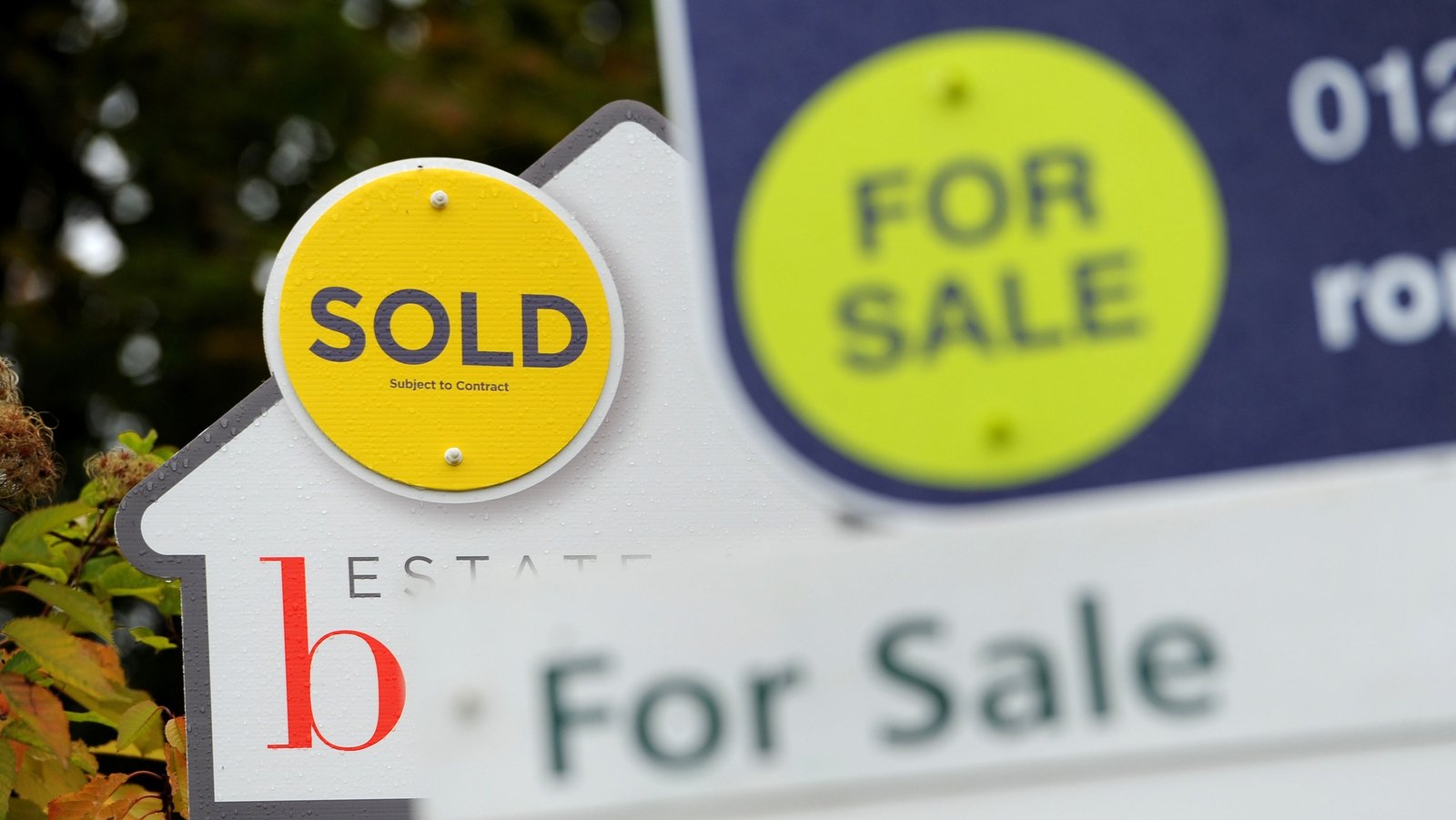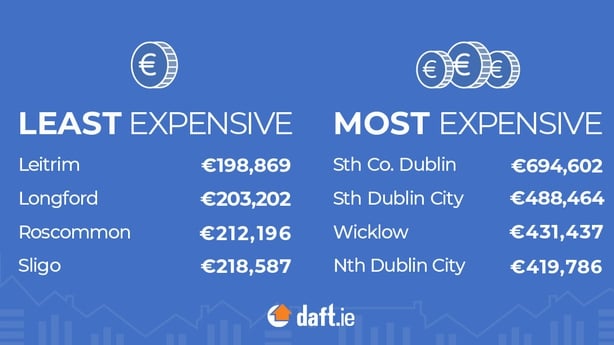Bussiness
Prices sought for homes are up 6.7% in the second quarter

Prices sought for homes across the country rose by an average of 3.8% between April and June when compared to the previous quarter, new data from property listings website Daft.ie shows.
The rise is the largest quarter-on-quarter gain since mid-2020.
The increases brought to €340,398 the average advertised price for a home in Ireland.
That represents a premium of 6.7% on the same three months of 2023, and 35% when compared to the onset of the Covid-19 pandemic four years ago.
“The tightness in availability has put upward pressure on housing prices,” said Ronan Lyons, economist at Trinity College Dublin and author of the report.
“As the figures show, inflation had peaked in late 2021, as that glut of savings found its way into the housing market. Inflation cooled from 13% in mid-2021 to just 2.6% in mid-2023.”
“As of mid-2024, however, it is back to 6.7%. Where it goes next will depend on how fast second-hand supply recovers.”
On an annualised basis, the increases in listed prices vary by region and are greatest in Munster where they are up 10.3% year-on-year and smallest in Dublin where they rose by 4.7% year-on-year.
In Leinster outside Dublin they have climbed 6.1% over the year, while in Connacht-Ulster they are 6.2% higher.
Daft said that while almost all regions saw asking price inflation tick up, compared to previous quarters, in Connacht-Ulster it is cooling slightly.
In relation to cities, the largest rise on a 12-month basis was in Limerick city, where prices are up 12.5%, followed by 12.2% in Galway city, 9.9% in Waterford city and 9.3% in Cork city.
According to the report, the total number of second-hand homes available to buy on 1 June was fewer than 11,400.

That’s down 18% on the same date last year and well below the 2015-2019 average of 24,700, Daft said.
However, it should be remembered that not all properties are advertised for sale on the platform.
“Over the past 20 years, a clear pattern has emerged in both sale and rental markets: when availability is tight, prices are pushed upwards,” Mr Lyons said.
“Availability in the sales market has been consistently tight since the start of the year and thus it is not surprising that prices nationally recorded their largest three-month increase since 2020. In part, tight availability of second-hand homes reflects the impact of significant interest rate increases.”
“As rates come down again, and in particular as sitting homeowners come off fixed-rate mortgages, supply should improve. This, however, is likely to take time and thus tight conditions may continue for some time.”










